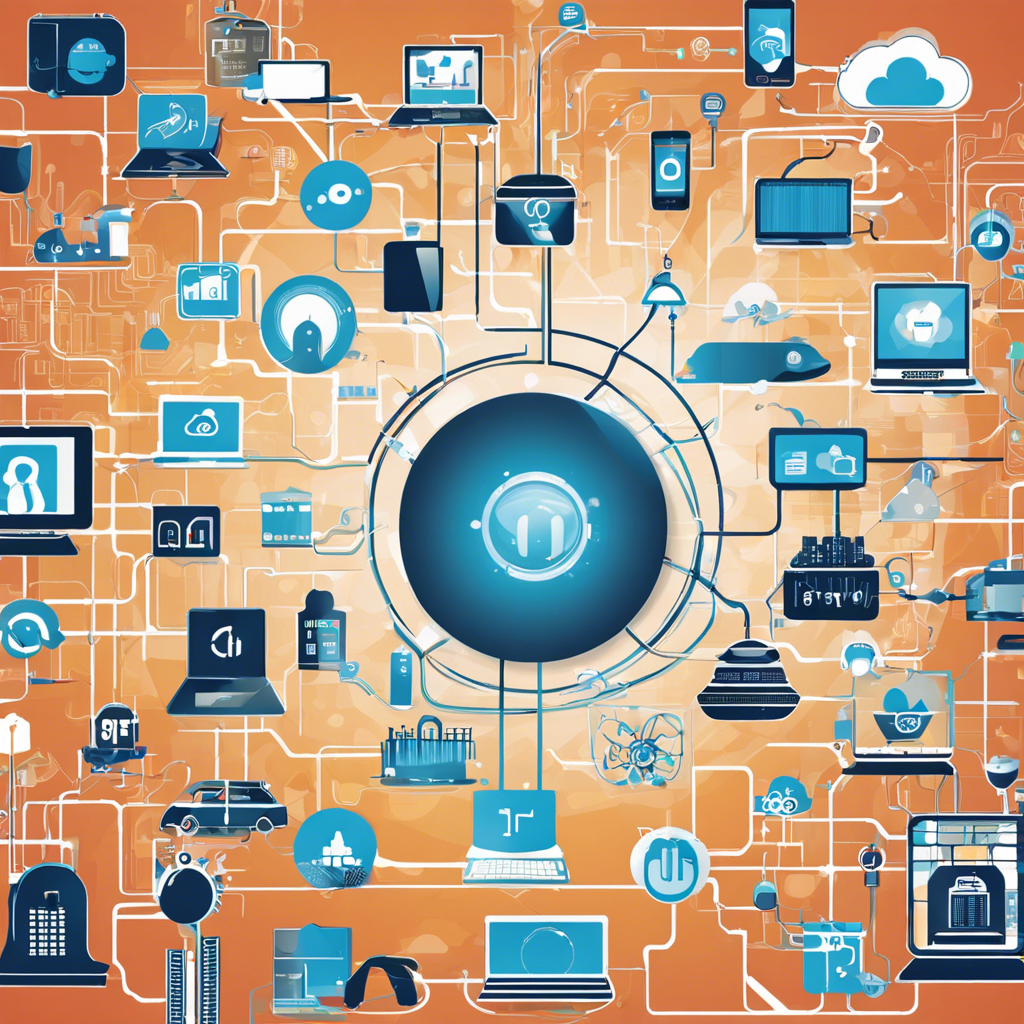The Internet of Things (IoT) is revolutionizing the way we interact with technology, offering a future where everyday objects become smart and connected. This transformative concept is set to shape our world, creating a seamless and interactive environment. With IoT, we’re not just talking about gadgets and gadgets alone; we’re witnessing the evolution of technology into an integral part of our lives, enhancing our surroundings and making them more responsive to our needs.
Imagine waking up in a smart home where your coffee machine starts brewing your favorite blend as you rise, while your virtual assistant provides an update on the weather and traffic for your commute. This is the convenience IoT brings, where devices communicate and collaborate to simplify our daily routines. From smart thermostats learning your preferred temperatures to security cameras you can monitor from your smartphone, IoT ensures that your home adapts to your preferences and keeps you in control.
Beyond the home, IoT is making cities smarter and more efficient. Streetlights equipped with sensors can adjust their brightness based on pedestrian or vehicle traffic, conserving energy and reducing costs. Smart parking systems guide drivers to available spots, easing congestion and frustration. Moreover, IoT-enabled waste management systems optimize collection routes, leading to cleaner and more sustainable urban environments.
In the agricultural sector, IoT is boosting productivity and efficiency. Farmers use connected sensors to monitor soil moisture, temperature, and nutrient levels, allowing them to optimize irrigation and fertilization. This precision farming approach minimizes resource waste and maximizes crop yield, contributing to a more sustainable food production system.
But the benefits of IoT extend far beyond our daily lives. In healthcare, for instance, IoT devices are revolutionizing patient care. Wearable health trackers monitor vital signs, providing early warnings for potential health issues. This real-time data allows medical professionals to offer personalized care, improving patient outcomes and enabling remote monitoring of at-risk individuals.
The industrial sector is also experiencing an IoT-driven transformation. In manufacturing, connected machinery can predict maintenance needs, reducing downtime and increasing productivity. Through IoT, supply chains become more transparent, with real-time tracking of goods, ensuring efficient inventory management and minimizing the risk of disruptions.
However, with these advancements come challenges. As we connect more devices, ensuring robust cybersecurity becomes critical to protecting our privacy and data. IoT device manufacturers and developers must prioritize security features to prevent unauthorized access and data breaches. Additionally, the vast amount of data generated by IoT devices requires careful management to ensure compliance with data privacy regulations.
The future of IoT is full of potential, but it also requires careful planning and regulation. As we embrace this connected world, we must be mindful of the ethical implications and ensure that technology serves us in a way that is beneficial and equitable. The Internet of Things promises a more efficient, convenient, and sustainable way of living, but its success depends on how we navigate the challenges and opportunities it presents.
In conclusion, the Internet of Things is not just a tech trend; it’s a paradigm shift in the way we interact with our environment. Its impact will be felt across various sectors, simplifying our daily tasks, improving efficiency, and enabling a more sustainable future. While challenges exist, the potential for IoT to enhance our lives is immense, and its development should be embraced with careful consideration and a forward-thinking approach. Get ready for a world where technology seamlessly fits into your daily routine, making life that much easier.
